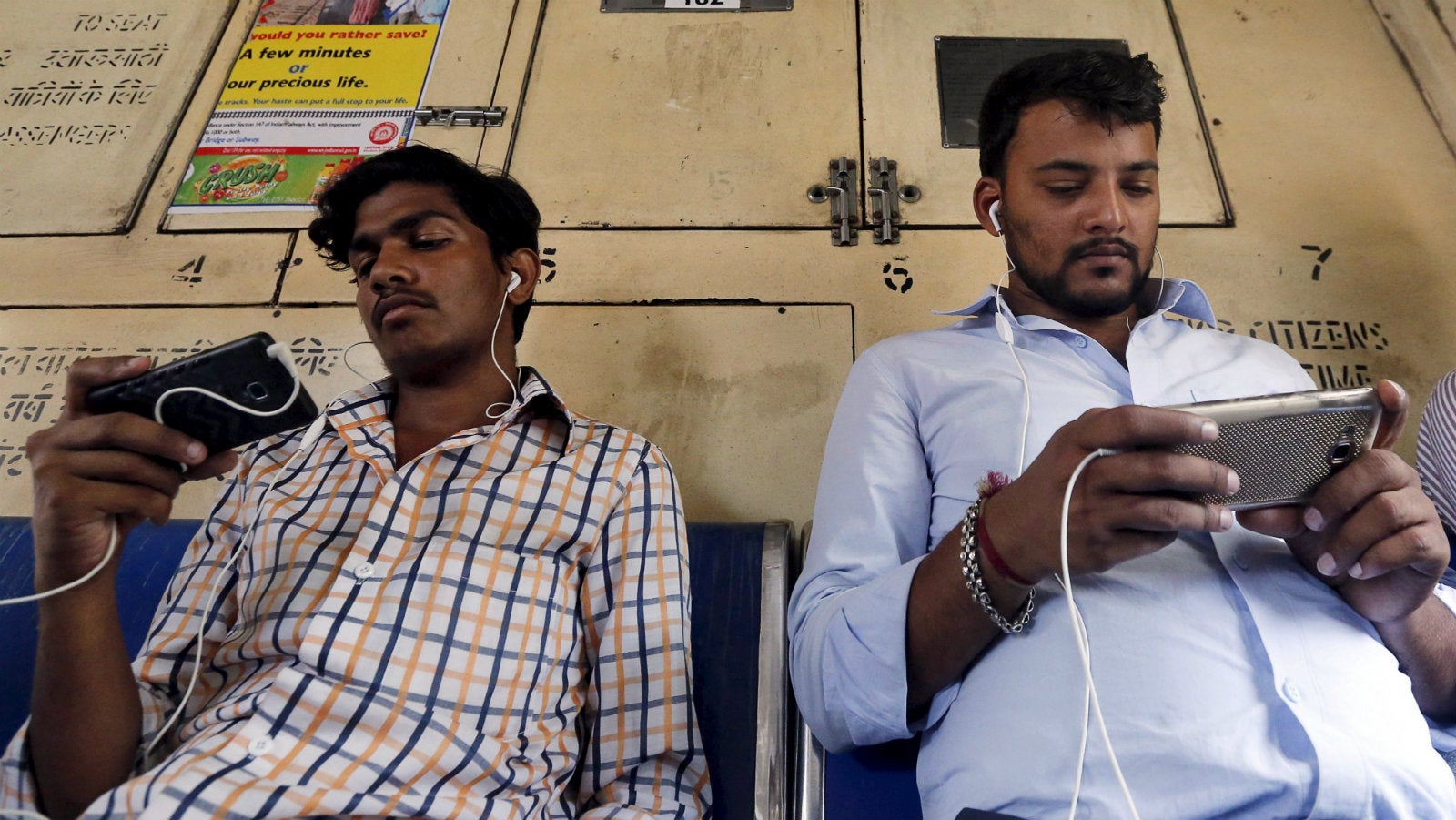A clinic in India’s Silicon Valley is treating its first case of Netflix addiction
India’s obsession with streaming services could be taking an unhealthy turn.


India’s obsession with streaming services could be taking an unhealthy turn.
A clinic at Bengaluru’s National Institute of Mental Health and Neurosciences (Nimhans) is treating its first case of Netflix addiction in a 26-year-old man who initially approached doctors concerned about the time he spent on video games.
Manoj Kumar Sharma, who heads Nimhans’ Service for Healthy Use of Technology (SHUT) Clinic, says the man was stressed out about his career prospects, comparing himself to others in his age group, and faced family pressure to find a job after his business venture failed. But when doctors interviewed him, they found that video games weren’t the problem.
“He found that whenever he used to watch these show series a lot, this used to help him out. This became a way to avoid day-to-day stresses and feel good…He used to watch (Netflix) for almost six to seven hours (a day),” Sharma told Quartz.
The SHUT clinic was set up four years ago to treat internet and social media addiction. Initially it got just one patient visit on average per week; today it stands at six or seven.
Over the same period, India has witnessed a staggering growth in internet penetration and access to smartphones, which have introduced millions to new apps and online services. Today, Indians on average spend over three hours every day accessing the internet on their phones, mainly using Facebook, WhatsApp, and Instagram.
Young people living in urban areas are much more likely to be online than spend time outdoors. And improving connectivity has made binge-watching the norm in both small towns and big cities, with millions staying up late to watch their favourite shows, often on their smartphones. The average time spent by Indians watching videos online has risen to 52 minutes per day, from just two minutes in 2012, a report by media agency Zenith shows.
All this has sparked a gold rush of sorts for companies like Netflix, Amazon Prime Video, Hotstar, and YouTube in India. But Sharma says it’s not that Netflix specifically is addictive, but rather that binge-watching shows online can be used by individuals as a coping mechanism in response to psychological stress in the real world. It’s the same logic behind social-media or video-game addiction, which the World Health Organization recently classified as a disease.
“If they find there is nothing available in the offline world which can relax them, and if they find this kind of relaxation and satisfaction in the online world, then there is a chance that they may develop excessive addictive use to one of the modalities which is available,” Sharma said.
Mental health has for long been a taboo topic in India. Though things are changing slowly with growing awareness, the fact that internet addiction is a risk and technology can be misused to hide deeper issues, are far less known. This makes the SHUT clinic’s work particularly relevant.
As for the man with the Netflix addiction, Sharma said he has been prescribed relaxation exercises and career counselling, which are now slowly making a difference. A lot of work lies ahead, though, Sharma said. “In due course of time, he can enjoy Netflix but also be productive in other domains,” he added.